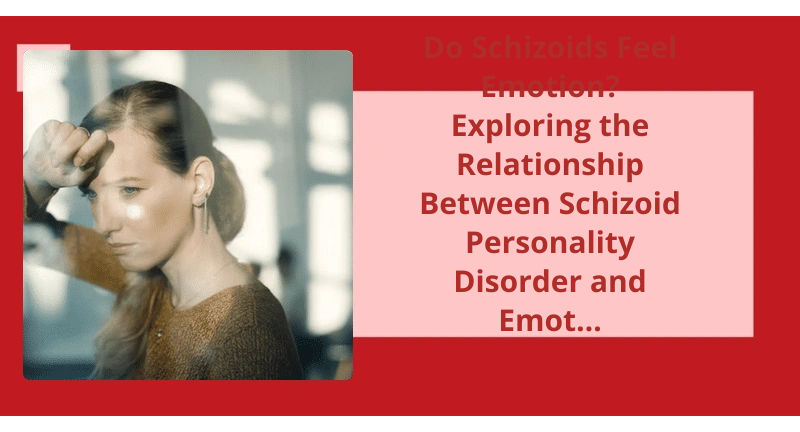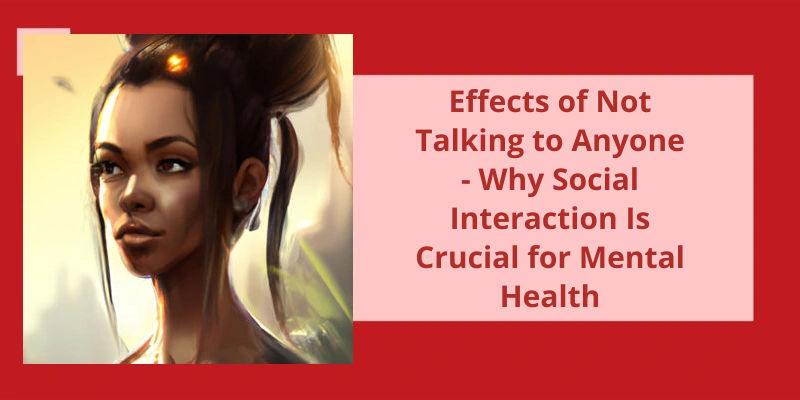This condition is characterized by a disinterest in social relationships and difficulty expressing emotions. People with this disorder may come across as aloof or detached, which can lead to misconceptions that they lack empathy. In this article, we will delve into the emotional world of those with schizoid personality disorder and explore the complexities of their experiences.
Can Schizoid Have Empathy?
However, the way they experience and express emotions may be different from what’s considered typical or normal. Schizoid individuals tend to detach themselves from their emotions, and may appear cold or distant to others. This can make it difficult for them to form relationships or connect with others on an emotional level. Yet, despite these challenges, schizoid personalities are capable of feeling empathy, and may even be highly attuned to the emotions of others.
Studies have shown that empathy is a complex emotion that involves several cognitive and affective processes. These processes include understanding another persons perspective, recognizing their emotions, and responding to their needs in a caring and compassionate way. For example, they may feel sadness or concern when they see someone who’s in distress, or they may feel joy when their loved ones are happy.
This type of empathy involves a deep understanding of other peoples emotions and an ability to recognize patterns in their behavior. This can be especially useful in fields like science, mathematics, and engineering, where analytical thinking and problem-solving skills are highly valued. However, it may also make it difficult for schizoid individuals to connect with others on an emotional level, as they may struggle to express their own emotions or understand why others are upset.
How Schizoid Personalities Differ From Other Personality Disorders
Schizoid personalities are characterized by a disinterest in social relationships and a preference for solitary activities. This is different from other personality disorders, such as borderline personality disorder or narcissistic personality disorder, which are characterized by more intense and erratic emotions and behaviors. Additionally, individuals with schizoid personality disorder don’t typically experience psychosis or delusions, which are often associated with other psychotic disorders.
As we delve deeper into the world of schizoid individuals, it’s important to recognize that their tendency to distance themselves from others can often lead to feelings of isolation and detachment. In some cases, this can even result in depression, depersonalization, or derealization. Let’s take a closer look at the impact that these emotional experiences can have on individuals who identify as schizoid.
Are Schizoids Prone to Depression?
Schizoid individuals are those who tend to avoid social interactions, preferring to spend time alone. These individuals don’t feel a strong need for intimate relationships and often distance themselves from others. However, their avoidance of social connections can cause feelings of loneliness and isolation, which may lead to depressive symptoms. Studies have shown that schizoid individuals are at a higher risk of depression than those who aren’t schizoid.
The depressive symptoms experienced by schizoid individuals can take many forms. For example, they may feel unmotivated and experience a lack of interest in activities they previously found enjoyable. Some individuals may struggle to concentrate or experience sleep disturbances, leading to fatigue and irritability. These symptoms are similar to those experienced by individuals with clinical depression.
Schizoid individuals may also experience a dissociation from reality, where they feel detached from themselves and their surroundings. This experience can lead to feelings of depersonalization or derealization, making it harder for them to connect with others. They may feel like robots or as if they’re going through life in a dream, leading to a sense of disconnection from the world around them.
However, those who do should seek support, whether through therapy, medication, or other forms of treatment. With proper support, schizoid individuals can learn to manage their symptoms and improve their overall quality of life, leading to healthier and more fulfilling relationships with others.
Can Therapy Help Schizoid Individuals Overcome or Manage Their Condition?
- Individuals with schizoid personality disorder may benefit from therapy.
- Cognitive-behavioral therapy (CBT) can help individuals with schizoid personality disorder identify and challenge negative thought patterns.
- Psychodynamic therapy can help individuals with schizoid personality disorder explore and understand their emotions and interpersonal relationships.
- Group therapy can be helpful for individuals with schizoid personality disorder to practice social skills and interact with others in a safe environment.
- Medication may also be prescribed to manage symptoms, such as depression or anxiety.
Source: What’s the difference between depressed and schizoid …
However, one question that often arises in the context of schizoid personality disorder is whether or not these individuals can experience happiness. While it’s true that many people with schizoid traits report feeling disinterested and disengaged from their surroundings, it’s still unclear whether or not they’re capable of experiencing positive emotions.
Do Schizoids Feel Happiness?
Schizoid personality disorder is a condition characterized by a lack of interest in social relationships, emotional detachment, and a limited range of emotions in interpersonal situations. People with this disorder often feel disconnected from others and have a difficult time experiencing pleasure or happiness. However, this doesn’t mean that they never feel these emotions. In fact, many people with schizoid personality disorder report experiencing happiness and joy in certain situations.
For some, happiness may come in the form of a solitary activity, such as reading a book or going for a walk. Others may find happiness by engaging in an activity with a close friend or family member. Regardless of how it’s experienced, happiness is an important emotion that can help to improve quality of life and promote overall well-being.
One strategy involves practicing mindfulness and being present in the moment. By focusing on the present and letting go of worry about the future or regret about the past, it may be easier to experience happiness and other positive emotions.
Another strategy for increasing happiness in people with schizoid personality disorder involves connecting with others. While this can be challenging for people with this condition, making an effort to reach out to others and develop relationships can be very beneficial. This process may involve seeking out support from a therapist or counselor who specializes in working with individuals with schizoid personality disorder.
While individuals with schizoid personality disorder may be perceived as emotionless or uninterested in social connections, it’s important to understand that this is just one aspect of the disorder. There are many layers to this personality disorder, and understanding them can help us better understand and support those who’re living with it.
Are Schizoids Emotionless?
However, it isn’t accurate to say that all schizoids are completely emotionless. While they may struggle to express their emotions in the same way that others do, they still have feelings and can experience a range of emotions just like anyone else. The difference is that schizoids may not feel comfortable sharing these emotions with others, and they might not be able to interpret or respond to the emotions of those around them. This can make them appear disconnected or emotionally indifferent, but it isn’t an accurate reflection of their inner experiences.
It’s important to note that schizoid personality disorder isn’t the same thing as schizophrenia, which is a separate mental illness characterized by delusions, hallucinations, and disordered thinking. While some people with schizophrenia may experience emotional flatness or difficulty connecting with others, this isn’t the defining trait of the illness. Schizoid personality disorder, on the other hand, is specifically characterized by a detachment from social relationships and an inability to experience pleasure from activities that others might find enjoyable.
There are many different factors that can contribute to the development of schizoid personality disorder, including genetic predisposition, childhood experiences, and environmental factors. Some researchers have suggested that schizoids may have a heightened sensitivity to certain types of stimuli, which can make them feel overwhelmed or uncomfortable in social situations. This can lead them to withdraw from social interactions and seek out activities that are less stimulating or demanding.
While there’s no known cure for schizoid personality disorder, there are a variety of treatments and therapies that can help individuals manage their symptoms and improve their quality of life. These may include individual psychotherapy, group therapy, and medication to treat co-occurring mental health conditions such as depression or anxiety. Many people with schizoid personality disorder are able to live fulfilling and meaningful lives despite their challenges, and with appropriate treatment and support, they can develop stronger relationships with others and find ways to express their emotions and connect with the world around them.
How Does Schizoid Personality Disorder Differ From Other Personality Disorders?
Schizoid personality disorder is different from other personality disorders in that it involves a detachment from social relationships and a lack of emotional expression, while other personality disorders may involve more extreme and erratic behaviors and emotional instability.
Conclusion
Understanding the complex emotional experience of individuals with schizoid personality disorder requires sensitivity and compassion. While it may be easy to dismiss someone with this disorder as aloof or uncaring, it's essential to recognize that they’re still human beings who experience emotions in their unique way. By cultivating empathy and awareness, we can create a more inclusive and supportive environment for those with schizoid personality disorder and other mental health conditions, helping them to receive the care and understanding they require.






